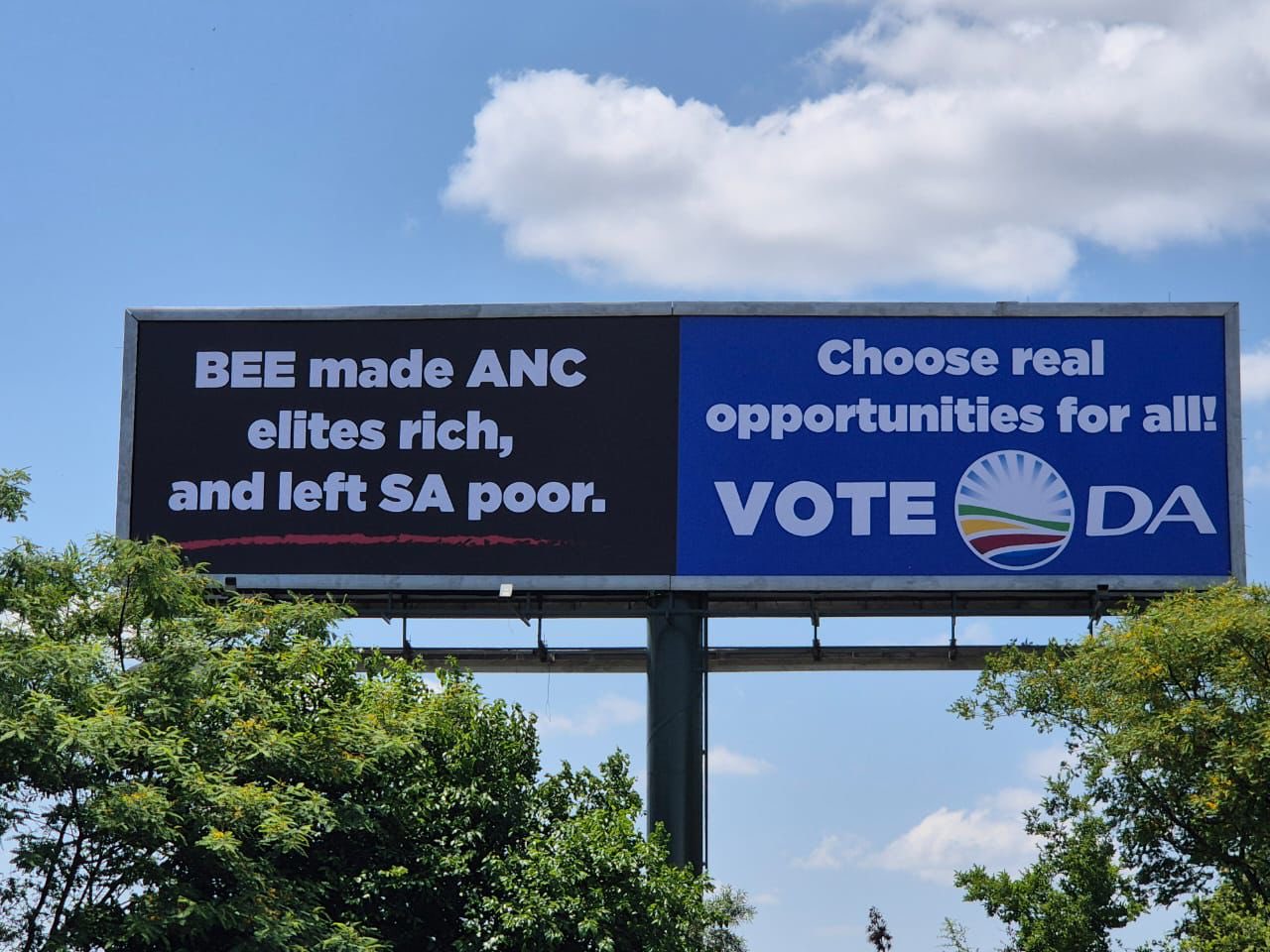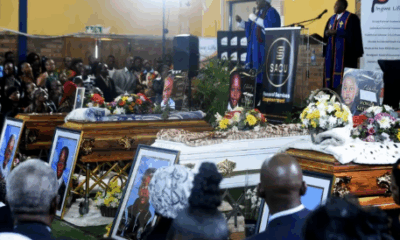South Africa’s contentious debate over Black Economic Empowerment (BEE) has been reignited with a new, public-facing offensive from the Democratic Alliance (DA). The party has unveiled a bold new billboard in its campaign to scrap the policy entirely, setting the stage for a political clash with its Government of National Unity (GNU) partner, the African National Congress (ANC).
The billboard’s message is unequivocal: “BEE made ANC elites rich and left SA poor. Choose real opportunities for all. Vote DA.” This move signals the DA’s intention to make economic transformation a central battleground in the political arena, despite the fragile unity governing the country.
The DA’s Argument: A System of “Patronage and Fronting”
DA MP Mat Cuthbert, speaking on the campaign, framed the policy as a three-decade-long failure. He argued that BEE has fundamentally betrayed its original promise of broad-based empowerment.
“It has made a handful of politically connected individuals wealthy while the rest of the country has been left behind,” Cuthbert stated. He pointed to the nation’s stark socio-economic realities12 million unemployed and 44 million living in povertyas evidence of the policy’s inability to create genuine, widespread economic inclusion.
The DA’s core criticism is that BEE has devolved into a system that benefits a small, well-connected circle through state tenders and contracts, while doing little to address the root causes of poverty and unemployment for the majority.
The Proposed Alternative: The “Economic Inclusion for All Bill”
The party is not just criticizing; it is proposing a replacement. The DA has drafted the “Economic Inclusion for All Bill,” which it claims would shift the focus from racial classification to socioeconomic need.
The party outlines its alternative approach as one that would:
-
Target poverty, unemployment, and skills development directly.
-
Support small businesses and remove red tape.
-
Build local economies where “opportunity is earned, not given to the well-connected.”
A public petition has been launched to gather support for this new bill, aiming to build momentum for a legislative overhaul.
The ANC’s Rebuttal: A Defense of Redress
The response from the ANC was swift and firm. Secretary-General Fikile Mbalula delivered a sharp rebuttal, framing the DA’s position as an attack on the very principle of redress for historical injustices.
“Anyone who wants to do away with BEE and affirmative action wants to kill redress and close shop,” Mbalula stated. His comments highlight the deep ideological divide between the two parties, even as they share power in the GNU.
“You are saying to us we must kill redress,” he continued, emphasizing the ANC’s foundational commitment to the policy. “We might meet there at GNU, but we are not one.”
This public spat reveals the significant tensions simmering beneath the surface of the unity government. The debate over BEE is no longer just about economic policy; it is a proxy for a much larger conflict over South Africa’s past, its present, and the path to a more equitable future. As the DA campaigns to dismantle the system, the ANC is digging in to defend what it sees as a cornerstone of post-apartheid transformation.




























